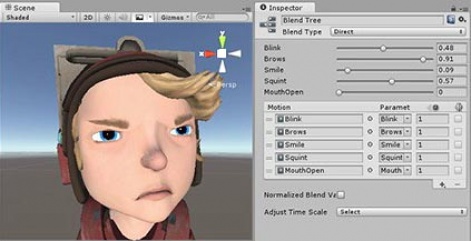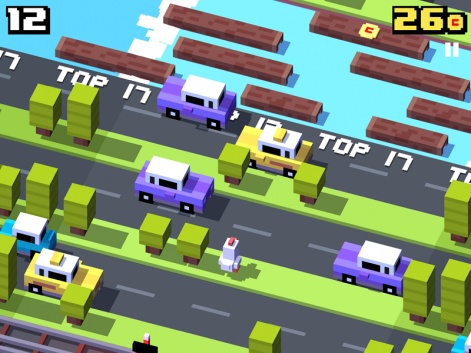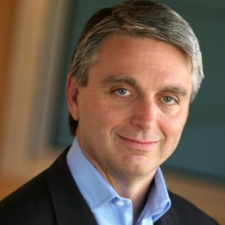"It's funny. You're a 3D person - a son, a husband, a father, a mountain biker... - but people want to collapse you down to a 2D caricature," says John Riccitiello.
I've asked him how surprised he was with the reaction to his October 2014 appointment that he was heading up industry darling tools company Unity Technologies.
Already a board member at Unity, he knew the business well, but it was his previous spells as CEO of Electronic Arts, a company that certain groups of gamers took perverse pleasure in voting the worst company in America two years running, that coloured his reputation.
Riccitiello is entitled to the last laugh, though.
In the two years since he left EA, its share price has been on a steady upward rise following the aggressive turn-around plan he launched: it's up five-fold since its mid-2012 nadir.
"You only see the success of a new CEO's plans the year after they join," he comments, taking claim for some of EA's uplift, although placing himself in the shadow of David Helgason, Unity's original CEO and co-founder, who on Riccitiello's timeline at least, can bask in the company's success for another six months.
Matter in hand
We're talking following Unity's GDC 2015 announcement of Unity 5, a new product with plenty of new features and a split licensing model; a free Personal edition and a complete $75 per month Professional edition.

"Pricing is a good lens," Riccitiello notes, although he doesn't want to get drawn into commenting on moves by competitors such as Epic, which has switched Unreal Engine 4 to a free-up-front-royalty-model.
It's nice that when we talk about money, we're talking about our developers making money.John Riccitiello
"GDC is an echo chamber," he says, although adding "there's less rivalry than might be expected".
Indeed, as ever middleware vendor I've every spoken to over the past 15 years has said, Riccitiello points out that it's still the case the "50 percent of games don't use middleware".
On the basis, and despite its more than 4 million developers, Unity's biggest competitor remains the proprietary engine.
And this is the point of attack that Riccitiello says remains Unity's strongest advantage over all competition.
"We want to enable developers to make great art and make a great business from it," he says.
"It's nice that when we talk about money, we're talking about our developers making money."
Vicarious pleasures
Outside of its engine technology that's certainly something Unity has been doing in recent months with respect to its Unity Ads business.
It initially announced Australian start-up Hipster Whale had generated $1 million from iOS players of its Unity Ads-integrated Crossy Road game, only to update that figure to $3 million at GDC.

"We want to solve hard problems for developers, and that's about making an awesome game but also about monetising it," Riccitiello states. "That's a hard problem too."
Yet balancing the view that the new CEO is all about the money, Riccitiello also brings up the vision thing.
"More than any other company, Unity is driven by its core values," he says.
"Our plans come out of those values, which is to solve hard problems for developers.
"800 million games made with Unity are downloaded every month. As an ecosystem, we play a similar role to Apple with iOS and Google with Android. It's a stewardship role."
No pressure then.





















